A HOUSE OF DYNAMITE (2025)
When a single, unattributed missile is launched at the US, a race begins to determine who's responsible and how to respond.
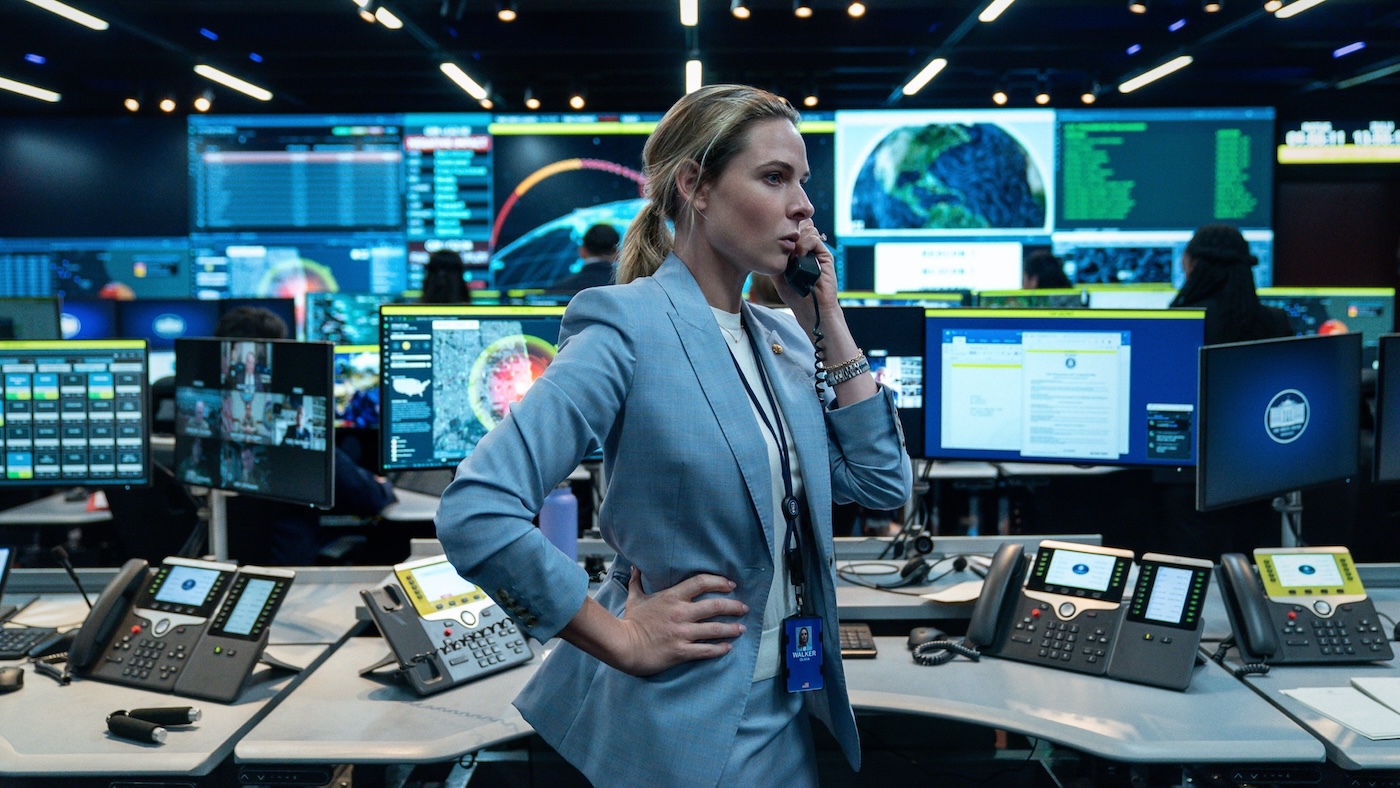
When a single, unattributed missile is launched at the US, a race begins to determine who's responsible and how to respond.


After a long eight-year absence, director Kathryn Bigelow (Strange Days) is back to remind us just how good she is at making intelligent, edge-of-your-seat thrillers, with A House of Dynamite. The film explores the frightening premise of a potential nuclear attack on the United States. More precisely, it deals with how the powers that be would act should such a horrifying scenario become reality. What makes it more terrifying is that they only have nineteen minutes to make a decision.
The movie is broken down into three chapters, each showing a different perspective on the unfolding chaos. If you’ve seen Akira Kurosawa’s Rashomon (1950), then you have an idea of what Bigelow is aiming for here, which when you think about the whole 19-minute timeframe, makes perfect sense as it serves as a clever narrative device to get in as much story, and characters, as possible. The first act concerns missile defence, then we see the various military and political top brass, with the final part focusing on the president.
Right from the off, after Volker Bertelmann’s (All Quiet on the Western Front) haunting yet impactful score kicks in, you know that this film has its intentions firmly set on giving you a stressful viewing experience—and, for the most part, it largely succeeds. Just to reinforce this dramatic intent, the following caption appears: ‘At the end of the Cold War, global powers reached the consensus that the world would be better off with fewer nuclear weapons. That era is over’. However, one could say the filmmakers are perhaps trying too hard in their attempt to get your attention, and I’m not entirely sure just how accurate these words are, but as a way to hook in its audience, it certainly does the job. You’ll be glad to know the rest of the movie is a little more subtle in its approach to the story.
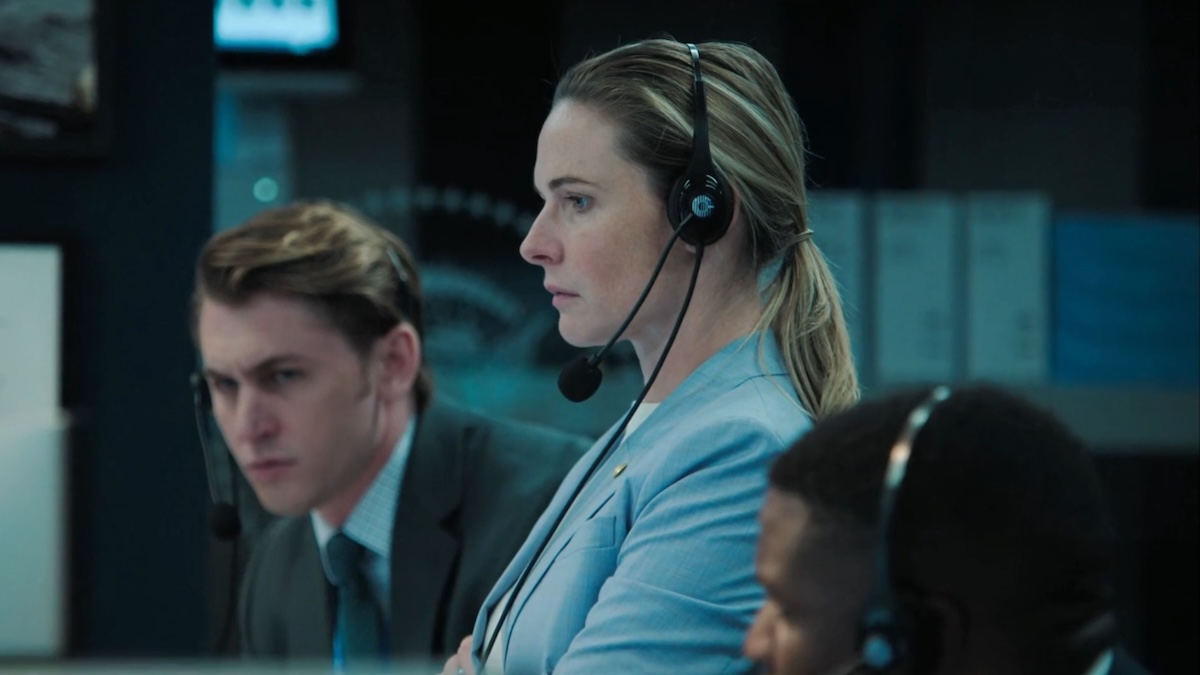
Following an effective opening few minutes set around the various personnel at the 49th Missile Defence Battalion, Fort Greely, Alaska, the action jumps to a domestic setting where we see Captain Olivia Walker (Rebecca Ferguson), a senior officer in the White House Situation Room, playing with her sick son at the somewhat early hour of 3.30 a.m. She soon heads off to work and it’s here that the film kicks into gear with its roaming cameras giving us a first-hand-view of said Situation Room: think scores of video screens on the wall, desktop computers, phones… you get the idea.
Not long after her shift starts, they see an alert showing an unidentified intercontinental ballistic missile (ICBM) has launched somewhere over the north-western Pacific Ocean. Walker and her team first assume it’s a routine North Korean missile test, but this theory soon vanishes when the missile’s trajectory changes, indicating in all probability that its final destination is the city of Chicago. Oh, and remember that it’s expected to hit within 19 minutes. What follows sets the tone for the rest of the film, in that there’s plenty of nervous conversations, tense video-calls, emotional outbursts, all the while you can practically feel the atmosphere in the room go from ‘we’re probably fine’ to ‘oh shit, we’re most definitely not’.
Bigelow, no stranger to sustaining suspense, yet again demonstrates her keen directing powers. Never once does she resort to showing her cast grandstanding with over-the-top speeches, or giving us a CGI image of the missile; no, what you get instead is stellar acting from all the main players, sometimes by just a facial expression, nothing more. Cue effective close-ups and smart dialogue, all backed up by superb camerawork and editing that conveys just enough of the unfolding horror for you to let your mind fill in the blanks.
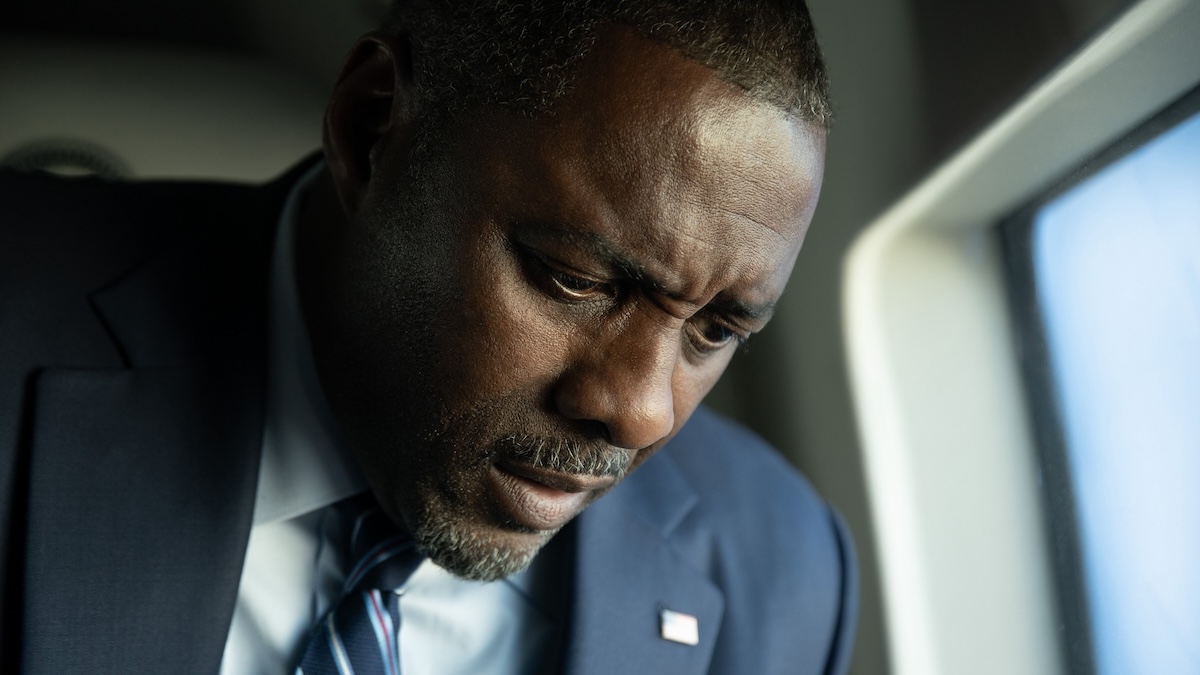
In this first chapter, as good as all the performances are, it’s Ferguson (Dune) who impresses the most. To see her calm exterior and confidence disintegrate before your very eyes leaves quite the impression. There’s a moment where she starts to cry, but quickly pulls herself together as she’s clearly worried about how she looks to her colleagues; her level of performance is top-tier—and given how good her supporting cast are, this is saying something.
As the first chapter closes out with no real conclusion to the story, the second act begins and it’s on to the high-up military and top-strata political figures’ viewpoint. Around this time, you realise there’s some overlap from the previous act, inasmuch as you’ll hear some familiar audio, or notice a face crop up that you saw 10 minutes ago. This is executed so seamlessly that it never pulls your concentration out of the film; in fact, you very quickly start to see the bigger scope of the story.
The action here mainly focuses on the United States Strategic Command (STRATCOM), with General Anthony Brady (Tracy Letts) and his team trying to work out how to best handle the situation. Letts’s (Homeland) performance, like Ferguson’s, is quite subtle. At first, his character seems more concerned about last night’s sporting event; he’s clearly in a good mood but very quickly his demeanour changes and he soon becomes very serious, with just the hint of fear dawning on his face. Like before, as the clock ticks ever closer to oblivion, you can almost feel his and each character’s stress levels going through the roof.
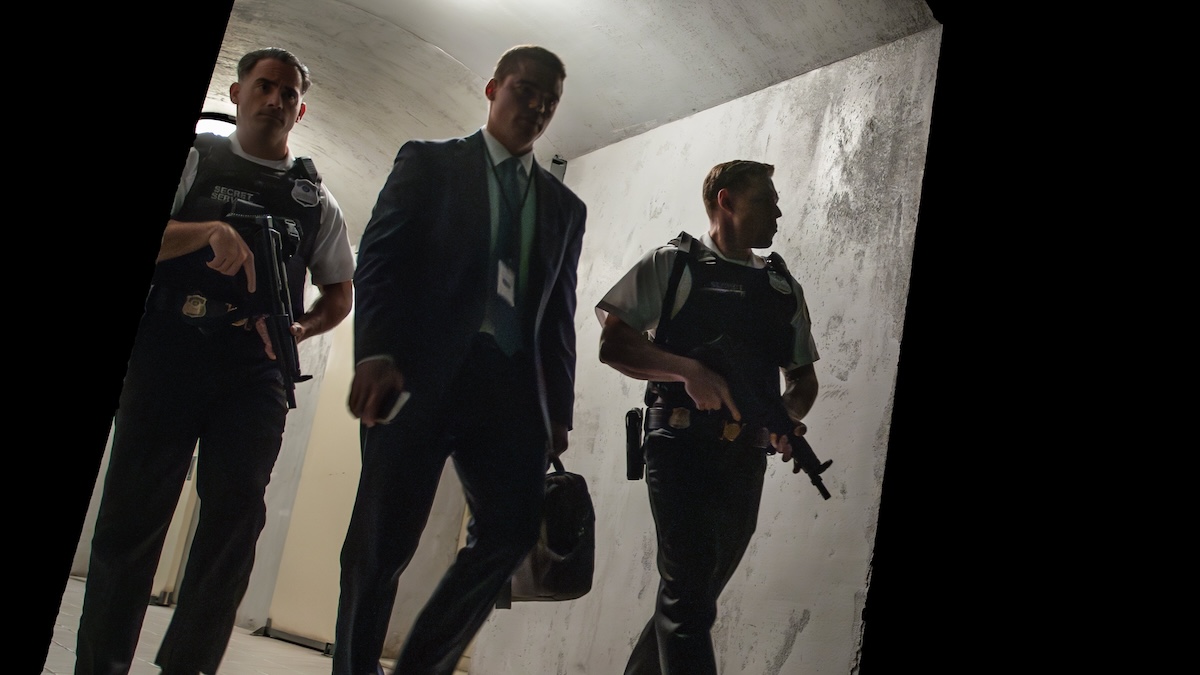
Finally, we get to the third act—and it’s the President’s (Idris Elba) turn to have a very bad day, along with the Secretary of Defence Reid Baker (Jared Harris). The Commander-in-Chief’s preoccupied with talking to his wife, who’s in Africa, and Baker’s naturally concerned that his daughter lives in Chicago. Both actors, like everyone else, give first-rate performances, and as this chapter proceeds, we see how each one reacts, with a tragic turn of events occurring towards the end—which is genuinely shocking and packs quite the punch. However, and this just may be my personal take, by now because you’ve basically seen the same story three times, that feeling of suspense is starting to wear off and you start to think, “Am I ever going to see what actually happens with this missile?”
Leaving aside that minor gripe, the film makes a horrifying point: the military might and geopolitical knowledge of a nation like the US is ultimately nullified by its own technological resources. We see them deploy everything—satellites, advanced tracking, and cutting-edge weapons—but nothing works. For all their powerful gadgets, they’re completely helpless to stop the impending disaster.
The way the film does end may annoy some viewers, but my final thoughts on this are that Bigelow and writer Noah Oppenheim’s (Jackie) creative choices make for a more bold and thought-provoking experience. I was lucky to first catch this in the cinema, and after seeing it the film stayed with me for days afterwards. When it hit Netflix, I watched it again, and while its power was slightly diminished, my overall conclusion was the same: this is a hard-hitting, suspenseful thriller. One which imagines the worst possible threat to mankind, yet it dares to let you really think about the utter pointlessness of nuclear war. For that alone, everyone concerned with the making of this should be applauded.
USA | 2025 | 112 MINUTES | 1.85:1 | COLOUR | ENGLISH

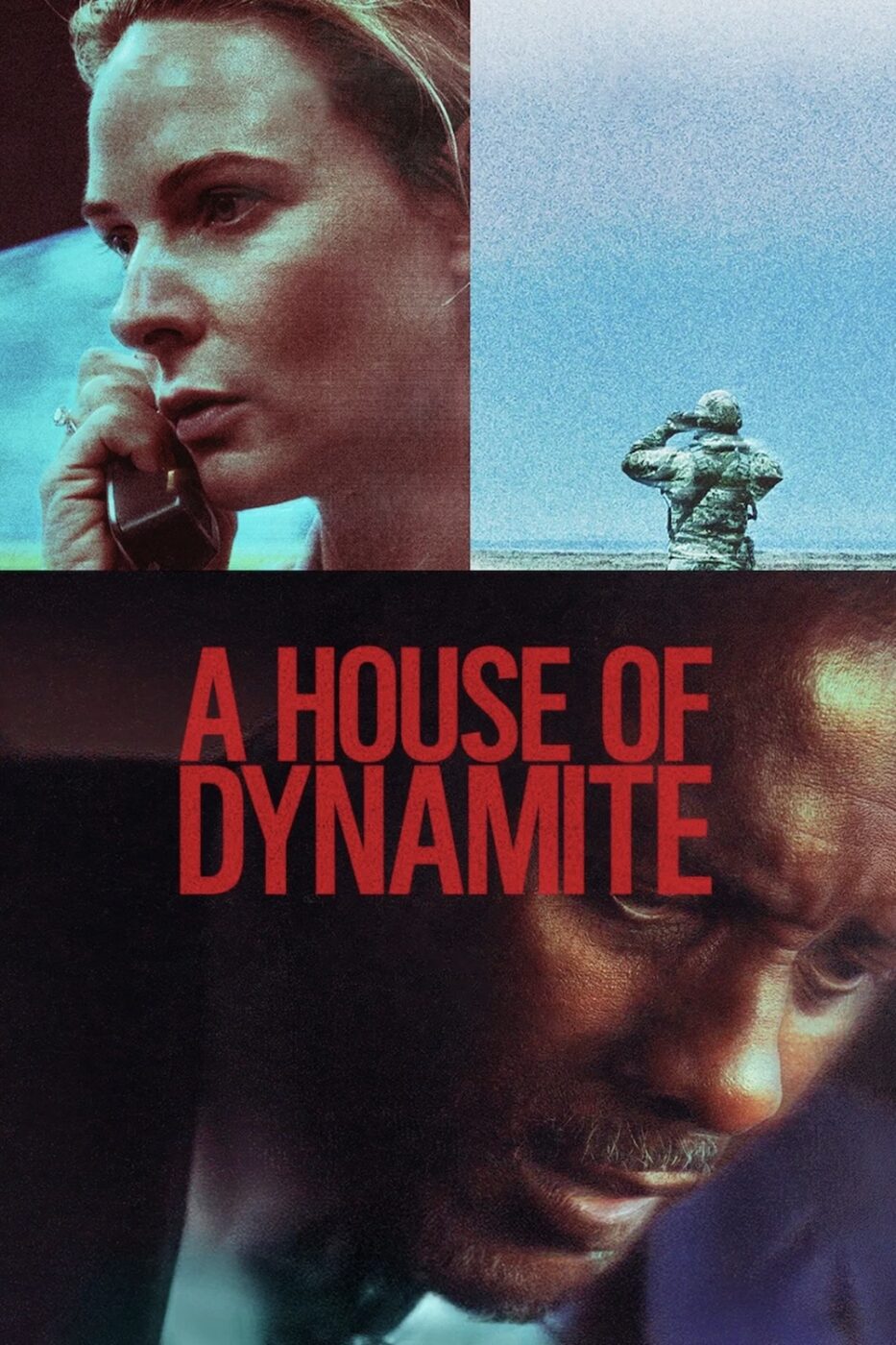
director: Kathryn Bigelow.
writer: Noah Oppenheim.
starring: Idris Elba, Rebecca Ferguson, Gabriel Basso, Jared Harris, Tracy Letts, Anthony Ramos, Moses Ingram, Jonah Hauer-King, Greta Lee, Jason Clarke, Brian Tee, Brittany O’Grady, Gbenga Akinnagbe, Willa Fitzgerald & Renée Elise Goldsberry.
